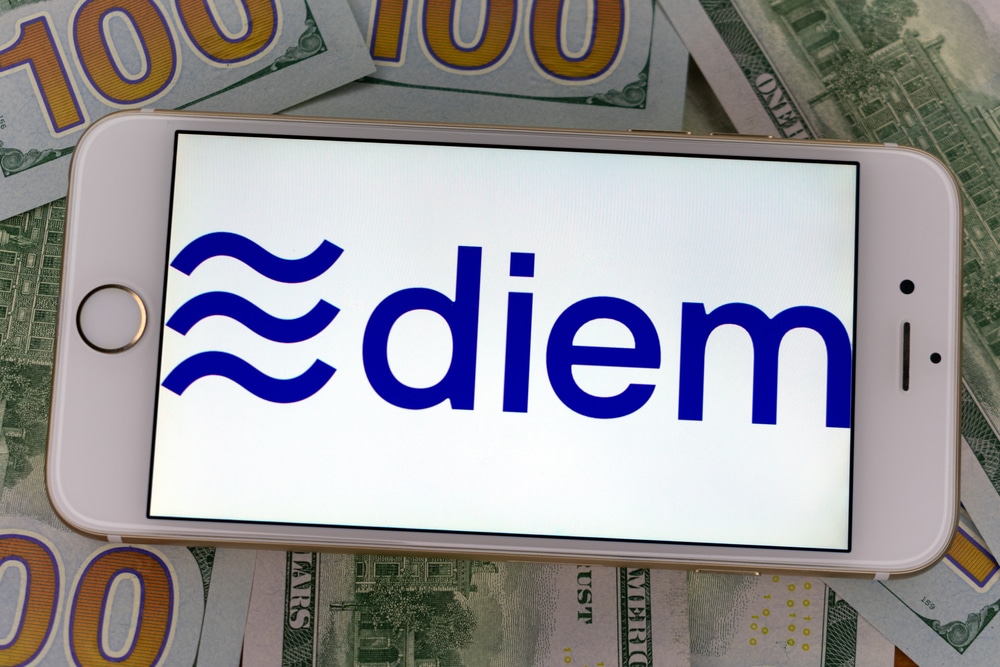Social media giant Facebook may be throwing in the towel on its goal of launching its own stablecoin, according to a new report from Bloomberg.
Bloomberg says that the tech titan’s plans for Diem, its attempt at a USD-backed stablecoin, are unravelling due to mounting regulatory pressure.
Bloomberg’s sources, who asked not to be named since the proceedings are not public, said that Diem is discussing with investment bankers how to best sell off their intellectual property, plus reallocate the engineers who all contributed to developing the technology. The Diem Association also wants to return capital back to its original investors.
After changing the project’s name from Libra to Diem, Meta’s Facebook then enlisted the help of Silvergate Capital Corp to help issue Diem, but the association says that the Federal Reserve Bank dealt the final blow in preventing the project from coming to fruition.
 Image via Shutterstock
Image via Shutterstock
Facebook’s ambitions also faced pressure from US lawmakers who publicly called for the tech giant to disband its plans for both Diem and its newly developed wallet, Novi. Five senators including Elizabeth Warren said that Facebook couldn’t be trusted to manage a global payment system because of the company’s allegedly unethical practices in the past.
“Time and again, Facebook has made conscious business decisions to continue with actions that have harmed its users and the broader society. Facebook cannot be trusted to manage a payment system or digital currency when its existing ability to manage risks and keep consumers safe has proven wholly insufficient. We urge you to immediately discontinue your Novi pilot and to commit that you will not bring Diem to market.”
While Diem appears to be disintegrating, Facebook’s Novi wallet is still under development, though its desire to utilize Diem will presumably change should plans for the stablecoin be abandoned. Currently, Novi uses Pax Dollar (USDP), but ultimately had plans to graduate to Diem.
Meta has made no public comment on the situation.





